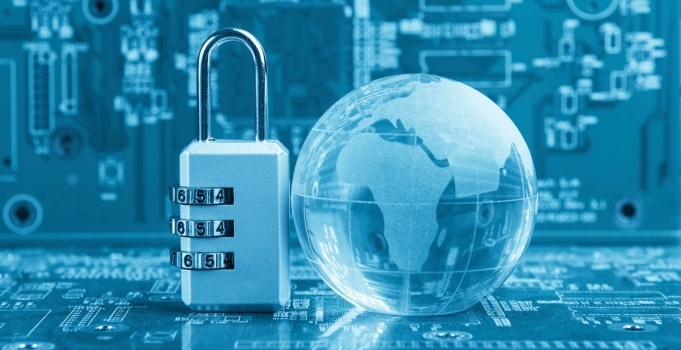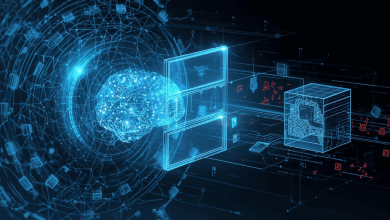
Tech industries thrive when they hire people with a wide range of abilities. The global cybersecurity sector needs to seek out and maintain a more diverse as well as inclusive demography to address the skills gap and build a more efficient workforce. Cultivating a team with varied perspectives and backgrounds enhances problem-solving capabilities and without diversity, creativity remains inert.
A workforce that is diverse and inclusive can develop solutions that address the different needs and difficulties that different groups face. It can easily increase employment satisfaction and retention rates, and uphold the moral obligation to protect everyone. This is how an organization’s commitment to diversity produces favorable results over the long run in addition to immediate gains.
Europe, with its rich tapestry of cultures, languages, and perspectives is a prime example of how diversity can shape cyber defense strategies and this article is an attempt to elaborate on the same.
7 Ways Europe’s Diversity Impacts Global Cyber Defense Strategies
Cybercriminals are breaking into information systems and obtaining sensitive data frequently. According to a report, published by Business Wire India, Globally, cybersecurity incidents have caused significant financial losses; by 2025, forecasts suggest that the cost will reach $10.5 trillion. To counter this situation Europe should adopt specific strategies to ensure safety in the cyber world and introducing diversity is one of the most crucial among all of them. Here are the ways a diverse workforce can impact businesses:
The modern world is interconnected. It demands a global perspective while addressing cyber defense strategies. To do that, Europe has adopted a diverse landscape position. It makes it possible to have a comprehensive and global understanding of cyber threats. Europe can prevent cybercrime by uniting against it, sharing threat intelligence, and taking part in international cybersecurity strategies, which will lessen its impact on the EU economy.
Building resilience against cyber threats is crucial. To guarantee a wide variety of viewpoints, Europe should promote an inclusive cybersecurity environment. In the cybersecurity industry, inclusive policies can improve creativity, flexibility, and problem-solving skills, strengthening Europe’s resilience to changing cyber threats. This is how enterprises can build strong resilience and achieve more quickly.
Cybersecurity threats require a unified front. Europe should encourage cooperative defense tactics among its members and other countries. By putting in place mechanisms for exchanging threat intelligence, organizing response teams, and participating in cooperative cyber drills, organizations can fortify their defenses, discouraging criminal activity and lessening the effects of cyberattacks.
One of the most crucial impacts of introducing diversity in cybersecurity is having fresh talent. Diversity, Equity, and Inclusion can transform methods of mitigating cyber risk by contributing distinct viewpoints and competencies to the domain. Furthermore, the enhancement of cybersecurity solutions at workforce representation that follows is a calculated move to bridge the skills gap in the business and guarantee a more diverse and proficient workforce prepared to tackle changing demands.
The diverse technological landscape of Europe offers a chance to establish innovation hubs and support international research projects. The creation of cybersecurity strategies can be accelerated by promoting cooperation between various tech ecosystems. Innovation centers serve as focal places for the sharing of expertise, resulting in a synergistic effect that fortifies Europe’s leadership in cyber defense solutions.
Since cultural contexts have a significant impact on cyber threats, a strategy may include adjusting defense measures to suit certain cultural situations. This entails being aware of the social engineering strategies used in various locales and adapting cybersecurity awareness campaigns appropriately. Europe can improve global cyber defense strategies by integrating cultural sensitivity into defense plans.
A strong defense strategy must include ongoing training and skill development given the dynamic nature of cybersecurity. By giving continued cybersecurity professional training programs a top priority, Europe can take the lead. By keeping up with the most recent developments in technology, dangerous landscapes, and defensive techniques, workers become more adaptable and skilled at thwarting new attacks via the internet. In addition to closing the skills gap, ongoing skill development ensures that cybersecurity specialists are prepared to handle the complexities of the digital world.
Bottom Line
In conclusion, the need for diversity is clear as Europe negotiates the challenging world of cybersecurity and plays a critical role in developing strong and practical defensive plans. Europe’s rich mosaic of cultures, languages, and viewpoints not only represents diversity but also acts as a ray of hope for international cyber defense. Through adopting a worldwide outlook, promoting diversity, teamwork in defense strategies, developing new talent, and stimulating creativity, Europe positions itself not only as a cybersecurity powerhouse in the region but also as a model for the rest of the world as it faces the ever-increasing difficulties posed by cyberattacks. The continent not only strengthens its cyber resilience but also makes a major contribution to global efforts as it continues to pioneer a variety of protection strategies that are tailored to specific cultural contexts.







